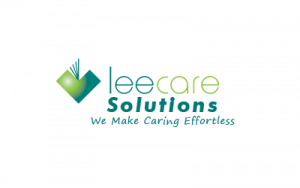A new global healthcare study published by the Future Investment Initiative Institute (FII-I), the not-for-profit global foundation that powers the annual Future Investment Initiative conference, revealed two critical findings:
- An additional 5% of GDP invested in the healthcare systems of developing countries could lead to an additional 9 years of healthy life expectancy.
- Integrating AI and robotics into existing healthcare systems could increase the efficiency of healthcare investment by up to 20%.
The research is part of the institute’s third Impact series report titled Health Equity: A Moral Imperative, which has been published ahead of the fourth edition of FII on 27-28 January 2021.
The conference will explore the theme of “Neo-Renaissance” – how we must collectively embrace this unprecedented opportunity for reinvention of every aspect of life across our planet to create a new chapter for humanity, rather than returning to the way things were before the onset of the pandemic.
FII Institute CEO Richard Attias said:
“This study is dramatic in its findings. Put simply, if our governments make wise investment decisions, we can increase life expectancy and we can make our health services work better for people in every part of our planet.”
“This is a time to look forward, to embrace the possibilities that AI and other technologies offer. Our Impact report highlights the need for us to emerge from the pandemic with an imperative to reinvent the way we live, work and care for one another. This is our chance to embrace a Neo-Renaissance.”
FII Institute’s global healthcare study includes a global ranking of healthcare systems, based on the efficacy of their structures, processes, and most importantly, outcomes. The ranking was based on the Donabedian model, with additional correlation analyses conducted in order to identify performance drivers and recommendations.
The study will be repeated and expanded on an annual basis. For the first edition, FII Institute has focused on 35 countries, with representatives from every continent and a variety of development levels.
The wider Impact report – Health Equity: A Moral Imperative – explores the key challenges of healthcare systems, many of which have been brought to light during the pandemic. Interviews, features, and articles form a core call to action: that health is a fundamental human right, and that it is a shared responsibility to ensure global access.
The report discusses how much technology and innovation is already available that can extend healthy lifespan, increase global productivity and improve quality of life, raising the question: what is keeping humanity from embracing transformative change?
Academics, healthcare officials, and innovators from all over the world share their insights in the Impact report, including:
- Professor Agnes Binagwaho, M.D., Ph.D., Rwanda’s former health minister and Vice Chancellor of the University of Global Health Equity
- Bertalan Meskó, Ph.D., The Medical Futurist
- Rachel Dunscombe, CEO of the NHS Digital Academy
- Walter Willett, M.D., Dr. P.H., Professor of Epidemiology and Nutrition at the T.H. Chan School of Public Health at Harvard University
“I have seen first-hand how lack of access to affordable healthcare can blight the lives of ordinary people,” says Dr. Nadine Hachach-Haram M.D., Founder of Proximie, a platform that enables an expert surgeon to virtually transport themselves into any clinical setting.
Speaking of the reaction-based, rather than prevention-based approach of developed healthcare systems, Professor Walter Willett says, “Western health systems have been focused on dealing with the consequences of poor diets and inactivity. There are a few places that are moving towards a different model, but the kind of system we have is really irrational.”
“I have no doubt that digital health can finally bring healthcare into the 21st century,” says Dr. Meskó, the Medical Futurist.
In discussing the opportunity for Africa to bypass traditional healthcare solutions with new technology, Professor Binagwaho says, “If we see an opportunity to leapfrog, we go for it. We have done it with our HIV treatment and our vaccination program.”
The report also highlights “Call to Impact” points across several topics, including concrete recommendations for governments, healthcare officials, as well as the general public.
Health Equity: A Moral Imperative can be viewed here.

Recognising excellence across the Asian Pacific.
Nominate now ➜
Read the latest and past issues of APAC Insider.
Explore issues ➜
Find out how we can help your business grow.
Find out more ➜




















